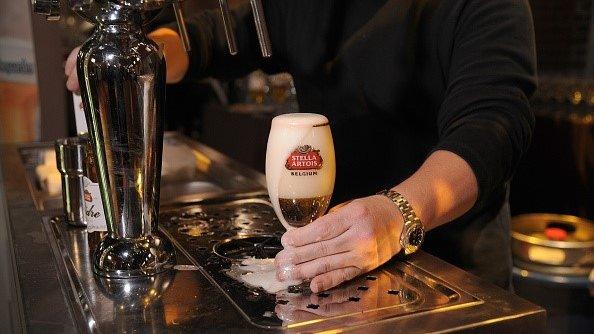What would a SABMiller takeover mean for drinkers?
- Published
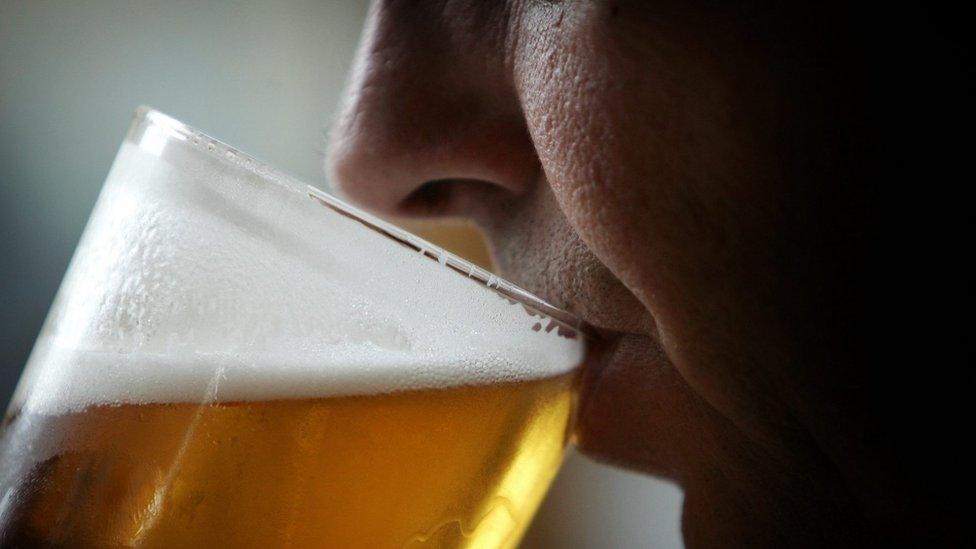
A £70bn brewing giant making 30% of the world's beer looks likely after SABMiller agreed to a takeover offer from its rival Anheuser-Busch InBev, but what does the merger mean for ordinary drinkers?
Budweiser, Stella Artois, and Corona are just a few of the household names made by AB InBev, while SABMiller produces Peroni and Grolsch.
Between them the companies produce more than 400 brands.
'Very genuine competition'
Even before a merger AB InBev is the largest brewer in the world.
One suggestion is that without the competition of SABMiller AB InBev would be more inclined to increase the prices of its drinks.
But Neil Saunders, a retail analyst at consultancy Conlumino, said that while the company might like to increase its prices it would be a risky business decision.
That risk is in part due to the growing popularity of craft and independent brewers which have contributed to an increasingly competitive drinks market.
"I think they will hope to put prices up but the thing that makes it very difficult for them is there's very genuine competition from the niche brewers, western Europe and America.
"If they put prices up it could lead consumers away," Mr Saunders said.
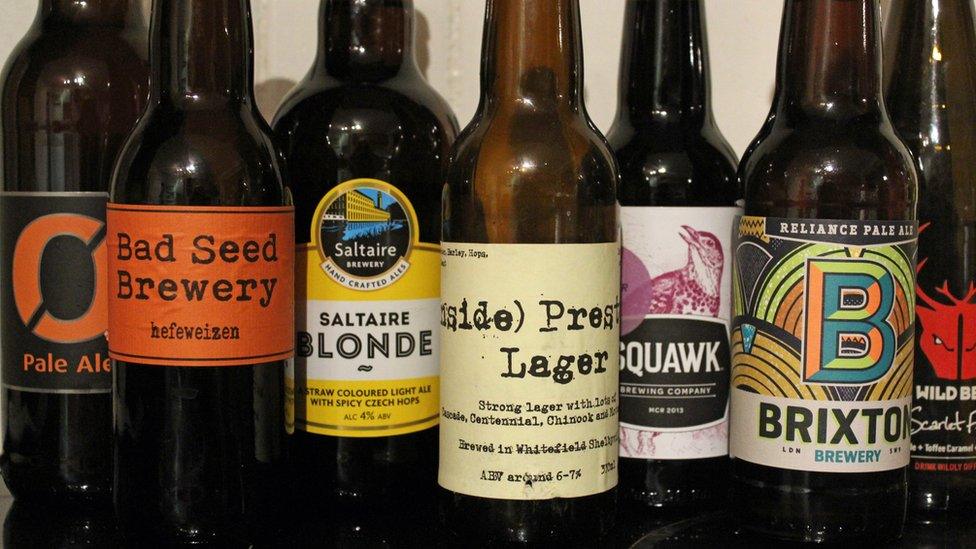
The rise of craft beers has been contributing to a more competitive drinks market
While prices may not go up, Mr Saunders thinks it is likely that some drinks will be discontinued.
"The biggest brands won't disappear because they are profitable but certainly some of the smaller brands could be phased out if they're not economically viable or if they're duplications of brands that are performing better," he said.
AB InBev would not comment on whether it planned to discontinue certain brands but described the portfolio of products as "complementary".
'Pushed off shelves'
The majority of the drinks produced by SABMiller and AB InBev are sold internationally and are not the kind championed by the Campaign for Real Ale (Camra) group, which promotes real ale, real cider and the British pub.
For that reason it says the deal will have a limited effect on the kind of beer-drinking it promotes.
But the group's spokesman, Tom Stainer, said there was concern independent beers may find it harder to get space in pubs and supermarkets because of the increased market presence of AB InBev.
In recent years thousands of small breweries have sprung up across Europe and North America, collectively eating into the sales of companies like AB InBev.
The growth of the sector led in May to SABMiller buying the London-based craft brewery Mean Time Brewing Company.
Mr Stainer said AB InBev will be able to offer deals that will leave less room for smaller brewers in both pubs and supermarkets.
He said: "Some drinkers may find it difficult to avoid these [chain] brands and they may find beers being provided by small independent brewers being pushed off the shelves in pubs and supermarkets by these companies."
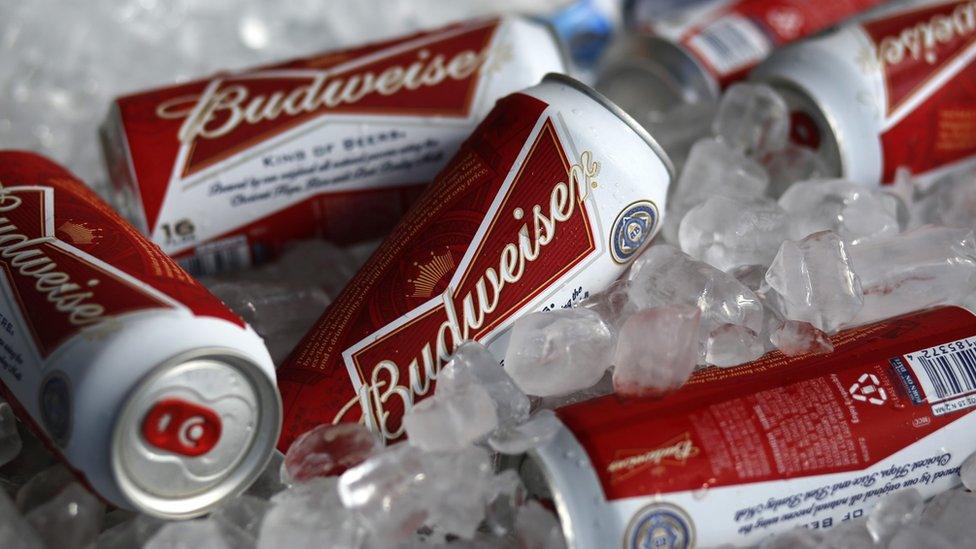
Budweiser is one of the global brands sold by Anheuser-Busch InBev
This is a possibility, Mr Saunders said, but he also thinks supermarkets will be reluctant to reduce choice.
"There's the opportunity for the company to exert more pressure, but the drinks market isn't just about low prices and offers - a lot of it is about taste and preference.
"Supermarkets will be careful about allowing one company to dominate."
Anheuser-Busch InBev
21%
global market share
-
$47bn annual revenues in 2014
-
$11.3bn in 2014 profits
-
155,000 global workers
But while some drinks may disappear from pubs or supermarket shelves, Mr Saunders believes it is likely new drinks will be brought forwards as well.
"What they mustn't forget is a big part of this market is innovation. They need to look at how they will bring new products to the market."
A spokesman for AB InBev said consumers will "have more opportunities to taste a wide range of beers, ranging from specialty and craft beers to local champions and global flagship brands".
- Published13 October 2015
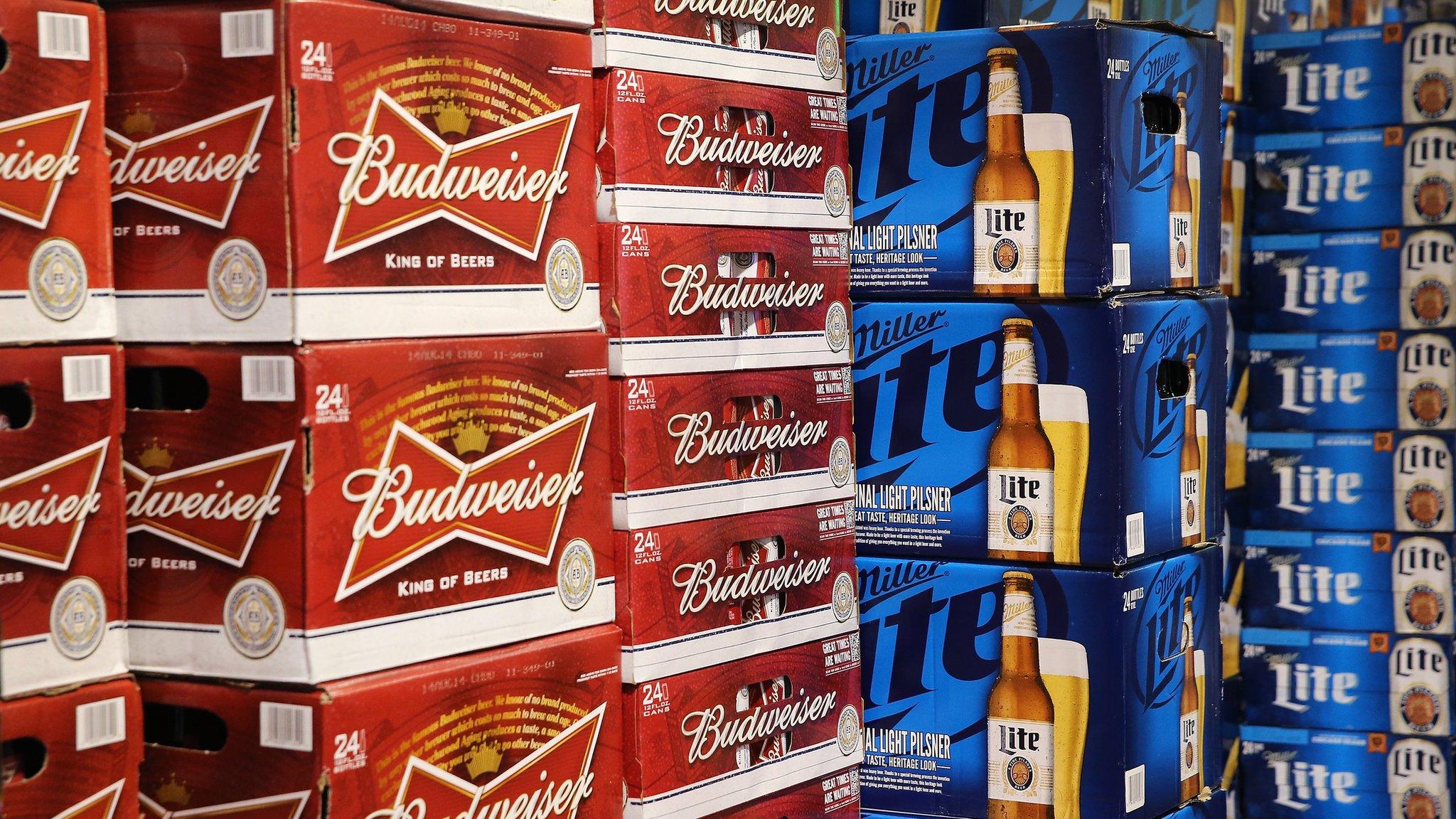
- Published13 October 2015
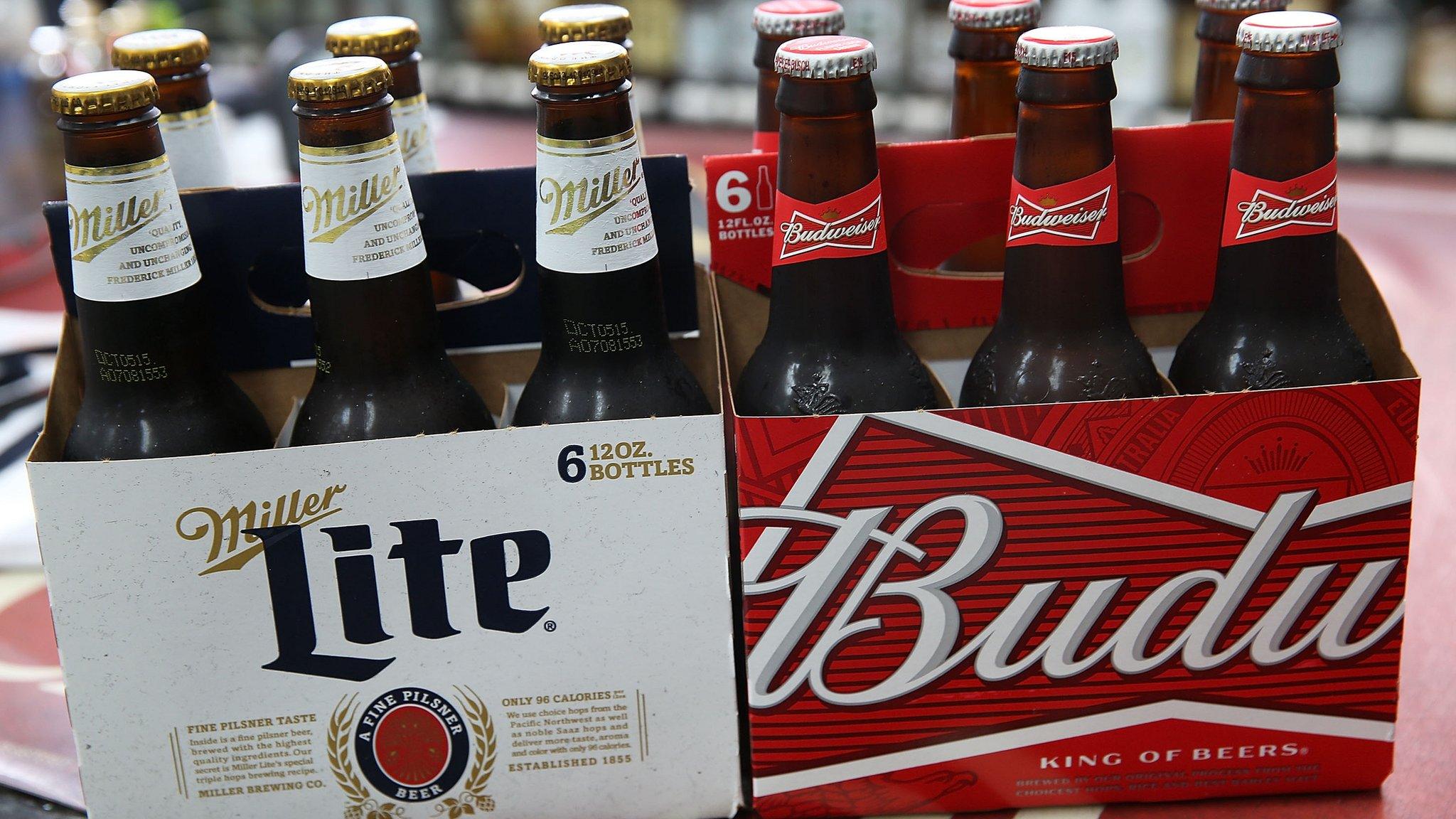
- Published8 October 2015
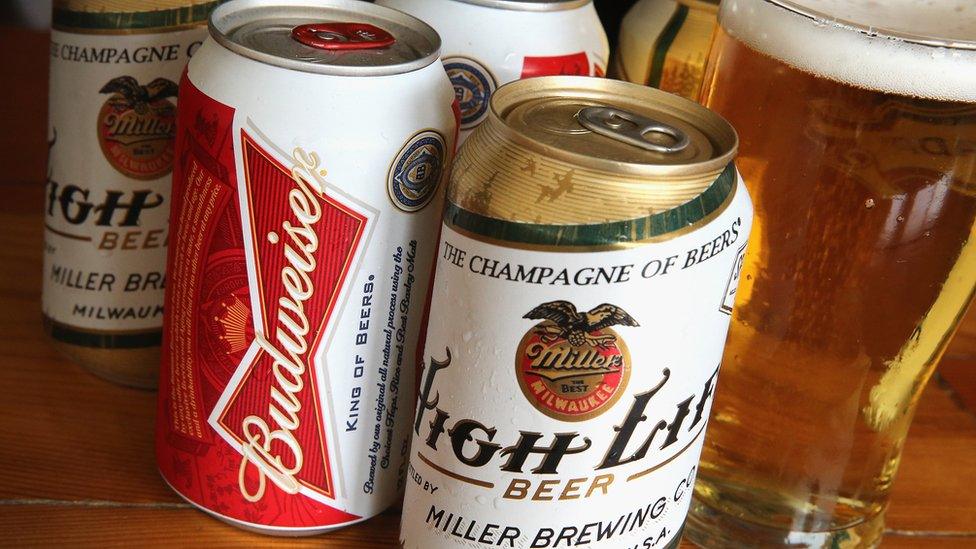
- Published15 May 2015
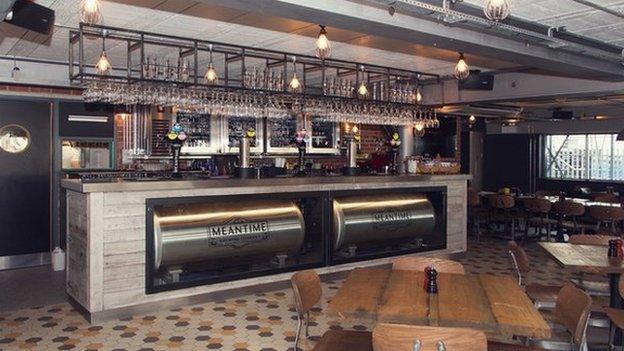
- Published16 September 2015
